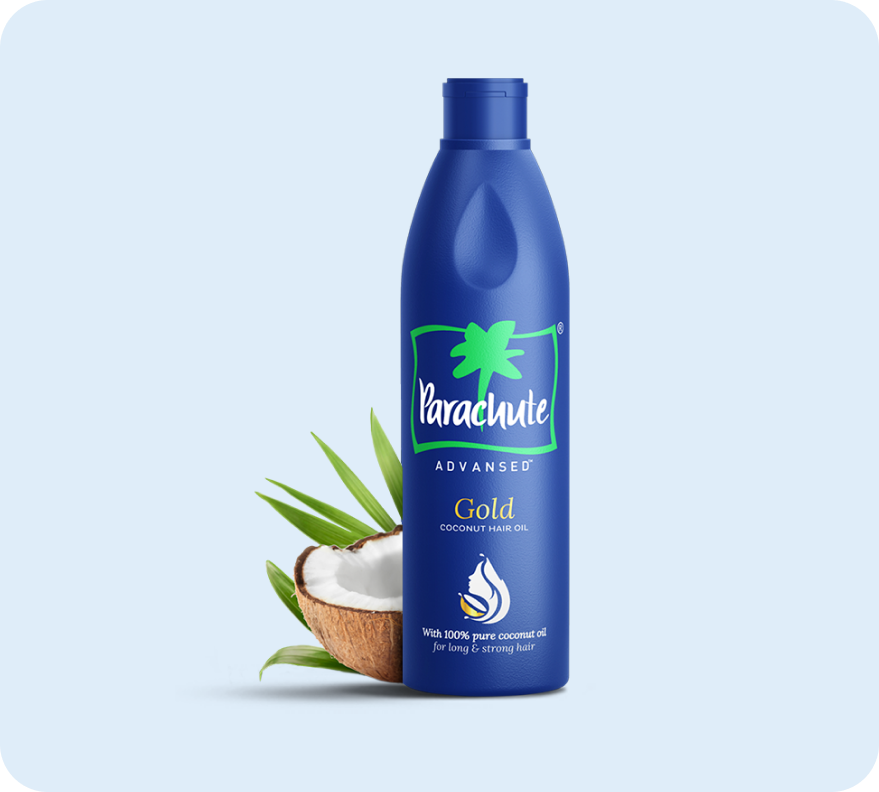
Back
Scalp Health Matters: Nourish and Soothe with Oils

Apr 10, 2024

13 min

Shilpee Singh
While maintaining our hair, we often pay more attention to its length, style and volume. The foundation of our hair, the scalp, tends to get overlooked in the process. In this article, we will be delving into the world of scalp health and the role oils play in nourishing and soothing the scalp. With summer already at our heads, it is natural to have dry scalp issues. It’s high time we instil hair scalp treatments into our hair care routine and give our scalps some much-needed attention.

What Constitutes a Dry Scalp?
Before exploring the solutions, let us first understand the issue at hand. One of the most common hair scalp issues faced by many is dry scalp. This condition is marked by persistent itchiness and a flurry of small, white flakes. It can occur due to a variety of reasons, like changes in weather, the use of stripping hair care products, or any underlying skin conditions. Dry scalps can cause discomfort and also negatively affect the appearance and health of your hair.
Do Hair Oils Help With Dry Scalp Treatment?
Yes, absolutely. Hair oils are nature’s way of relaying nourishment to a dry, itchy scalp. Hair oils used regularly as a dry scalp treatment can moisturise your scalp, strengthen your strands and stimulate better hair health. Some of the most sought-after hair oils for dry scalp treatments are coconut-based hair oil, jojoba oil, and tea tree oil.
These oils are hydrating and help treat the underlying problem. For instance, coconut-based hair oil is packed with antimicrobial properties and fatty acids, which can soothe and nourish the scalp. Jojoba oil is an excellent moisturiser, strengthening your hair and promoting thickness in the process. Tea tree oil-infused hair oils have antifungal and antibacterial properties, which can help tackle any dead skin or buildup.
How To Incorporate Oils into Your Hair Care Routine?
Once you select a hair oil that best suits your needs, incorporating it into your regular hair care routine is the next step. Here's how you can use your hair oil as part of your hair scalp treatments:
- Warm Oil Massage: For this, all you have to do is warm up a few tablespoons of your hair oil and gently massage it into your scalp. Make sure the oil is not too hot. Massaging in the hair oil nourishes the scalp and boosts blood circulation.
- Oil-Based Hair Mask: To make a deep conditioning hair mask, all you need is a few tablespoons of your selected hair oil and a scoop or two of other hair-friendly ingredients like honey or aloe vera. Carefully sort your hair into sections and apply this to your scalp and hair. Leave it on for at least 30 minutes, and then wash it off.
- Overnight Treatment: For an intensive treatment, you can leave your hair oil overnight after massaging it in. However, use this method sparingly for the best result. Rinse your hair thoroughly the next morning for a much-nourished scalp.
- Mixing Oils: It is an age-old practice to mix hair oils for the best hydration. For instance, you can mix a pump of castor oil, known for promoting hair growth, with equal amounts of coconut-based hair oil, a rich concoction for dry hair scalp treatment. That said, you can also adjust the ratio of oils depending on your scalp's specific needs.
Why is Maintaining Moderation Key to Effective Oiling?
While it is true that hair oil plays a significant role in ensuring the health and shine of our hair, overdoing it can pose some risks as well. Excessive oiling can make your hair greasy, create buildup and even create an imbalance in the scalp's natural oil production.
To use your hair oil optimally, take into account your hair length and thickness. Start with a little and work your way through your strands. Try to limit your hair-oiling sessions to once or twice a week, with a rinse of clarifying shampoo as a must on such days. You do this, and your hair will love the nurturing—growing long, lush and beautiful.
To reiterate, taking care of your scalp allows for much stronger and healthier hair. Oiling your hair is an excellent way to do so. They are effective and naturally work to nurture and soothe your scalp. So, the next time you find yourself dealing with a dry, itchy scalp, consider using your favourite oil to provide your scalp with the nourishment it needs with the above dry scalp treatments to achieve the best results. Here's to a healthy scalp and strong hair!
DISCLAIMER:
Our team picks and curates content we think you will like. Opinions expressed within the content are the creator’s views and do not reflect the opinions and beliefs of the website or that of Marico Limited.

SHARE NOW






Vitamin E for Hair: Benefits & How to Use it
Explore the top 5 benefits of vitamin E for hair, including promoting scalp health, boosting growth, reducing greying, and improving hair quality. Learn how to add vitamin E to your routine for healthier, stronger hair.

Feb 23, 2023

10 mins

SHARE NOW






Aloe Vera for Scalp: The Magical Benefits of Aloe Vera Hair Oil for Scalp
Experience the wonders of aloe vera for scalp health. Learn how aloe vera hair oil soothes, nourishes, and promotes a healthy scalp for stronger, shinier hair.

Feb 23, 2023

10 mins

SHARE NOW
















